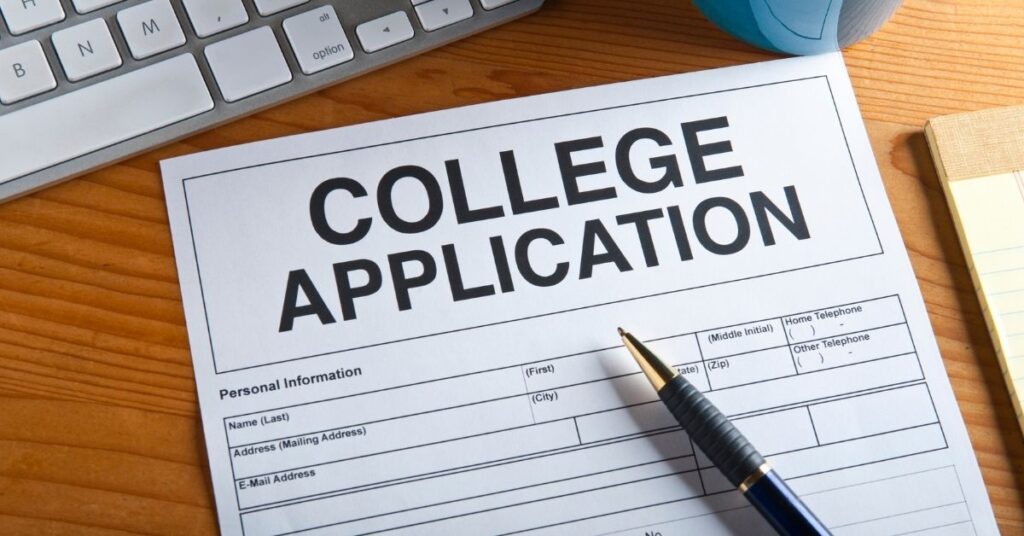As parents, we want our children to be successful in life. We hope and dream they will have fulfilling careers and satisfying personal lives. For many, part of that dream is that their child will go to college. That isn’t any different for those who have children with autism and ADHD. Those with autism spectrum disorder have a range of capabilities. Like neurotypical children, you have those who will and can go to college, and those who will not. So how do we prepare our autistic and ADHD child for college if we believe they are capable?
According to Autism Speaks, “more than half of young adults with autism remain unemployed and unenrolled in higher education in the two years after high school.” A study published in Pediatrics in 2012 noted that for those who did attend college that “higher income and higher functional ability were associated with higher adjusted odds of participation in postsecondary employment and education.”
Can my autistic teenager go to college?

I admit that whenever I read statistics and articles about autistic teenagers/young adults and postsecondary education and employment that I initially get discouraged. Then, I realize that it motivates me to help my son J. I want J to be successful, and I know that with the right supports he will be able to complete a degree and hold a job. Yet, I realize he is going to struggle.
Many teens with autism and ADHD are challenged with a lack of executive function skills, have difficulty with independence, and disadvantaged with an invisible disability. I know these are things that J is struggling with in high school, but I see steps he and we are taking to improve these areas. We are working with his special services team at his school on transition planning and including the right supports and classes within his individualized education plan (IEP).
However, our autistic teens and young adults can be successful, especially if we prepare them for college beginning when they are a child. We can help them build self-advocacy skills. We can help them work with the college’s disability office to understand the supports that are available at school. If they are going for a four-year degree, they can start with the more general classes at a community college to acclimate. As parents, we need to know that we will need to be more involved in our autistic child’s college years to help prepare and support them. We also need to be patient and realize their college (or any post-secondary education) may have a different timeline and take longer. That’s okay.
Ways to help prepare your autistic child for college
So how can we prepare our autistic and ADHD child to go to college? We can begin many steps when they are still children and then ramp up their work on certain skills when they become teenagers.
1. Improve communication and social skills
It is imperative that our teens are able to communicate effectively and have the social skills needed to do well in college. Whether it’s talking to professors or understanding class assignments, communication is key to success. That means as parents we should consider whatever help our child needs now to prepare them. Those services could include speech therapy, cognitive therapy, social skills groups or other programs that could help.

2. Teach your teen how to set goals
Learning how to set goals is definitely a life skill, and one that will benefit our children during college. When our son J was a younger, he had a YouTube channel on which he posted Mario Bros. plushie videos that he created. It did pretty well, and he learned a lot about goal setting. He set goals for how many videos/uploads he would create per week, the timing of those uploads, and how many subscribers he wanted. That experience him taught him so much.
3. Focus on executive function skills
Executive function skills such as planning, organizing, avoiding distractions, initiating projects and more are so important in life – but especially college. I wrote this article that talks about 12 ways you help your child improve their executive function. In addition, there are two books that I have found to be so helpful and provide so many practical tips. Those include:
“Smart but Scattered Teens: The “Executive Skills” Program for Helping Teens Reach Their Potential” by Drs. Peg Dawson and Richard Guare (affiliate link)
One of the best things your autistic child can do to prepare for college is to improve their executive function.
4. Encourage self-advocacy
Self-advocacy is incredibly important during college. Our kids need to learn how to speak up for themselves and state their needs and preferences clearly. They also need to be able to handle their own affairs. The sooner we begin teaching our kids self-advocacy skills, the better. These include problem solving, negotiating, communication and decision-making.
5. Enroll them in a study-skills course and hire a tutor to help them learn how to study effectively
This is a big one. Unfortunately, I don’t think most middle or high schools do a good job in teaching our kids how to study effectively. I know I didn’t learn these skills until I was in college, and I found out it would have been so much better to have learned them earlier! I find the same thing happening for J, and I’ve been working on teaching him how to study the last couple of years. Yet, I think it can be better, so I plan to look into a tutor next year who can teach those skills to help him do much better on tests.
6. Practice life skills
Building independence by learning life skills is so important for kids, regardless of whether they go to college or not. You and your teen may decide it’s better for them to live at home during college. They still need life skills – especially around transportation. If they don’t feel comfortable driving or don’t have their license yet, they will need to learn how to use public transportation. They also need to know how to manage their own hygiene, their finances and even know how to cook their own meals. Check out this article about 14 ways to help your autistic/ADHD teen build independence.
You might also consider this book to help you and your teen develop skills they need and plan for their future:
7 Habits of Highly Effective Teens (affiliate link)
7. Teach them how to handle money
Managing money is challenging for teens and young adults, but it is one of the most important lessons you can teach them. Start when they are young to split their money into three jars: save, give and spend. I also insisted that half of any of their birthday or holiday gift money go into their savings account at the bank, and then they had the rest to split between their jars. Now that both of my boys are teenagers, we will be doing financial literacy lessons each week this summer. I am a certified financial educator, so I’m looking forward to advancing their financial knowledge 😊
Don’t know where to start? Here are a couple of books that can help.
I Want More Pizza: Real World Money Skills for High School, College, And Beyond (affiliate link) (I bought this one for son J a few years ago, and it really helped him understand money concepts and practical advice for handling money.)
Money $mart Teens: 48 Interactive Lessons for Understanding, Making, Saving, and Spending Money (affiliate link)
8. Learn about different options to determine which is the right fit
When I say “college,” I really mean any post-secondary education. That could mean a traditional four-year university or college, community college, online school, etc. It also can include vocational schools that focus more on trade careers. Luckily, there are many options for our teenagers today. That is a good thing, and it gives our teens the ability to pursue the education they need for the job and career they want.
9. Research what special education or disability services are offered at targeted schools
Once you have a list of potential schools for your child, research what type of special education or disability services they offer. Many schools have an office of disability, so you could even reach out to schedule a phone call or meeting with them to find out more. This is key step in helping to support your future college student.

Affording College
We want our autistic children to go to college, but we are concerned about the cost. Families who have a child with autism are hit hard financially. Hopefully, you’ve been able to save up some for college through a 529 college savings plan or Coverdell education savings account. We have been saving in 529 plan for both of our boys, but I know it won’t be enough. How else can you afford to send your child to college?
1. Consider tuition assistance through Vocational Rehabilitation
The national Vocational Rehabilitation (which has a local agency in each state) offers college scholarships and tuition assistance to people with disabilities. I have initiated the process with Voc Rehab for my son J to see if they can help with coaching and helping him find his first part-time job during high school. If they deem him eligible, I am hopeful that they will also provide a scholarship to him in the future for college.
2. Apply for scholarships for people with autism
Did you know there are college scholarships specifically for students with autism? The CollegScholarships.org website is a good place to start. Also, some autism grants also aid with college costs. Be sure to research local scholarship opportunities as well.
3. Determine what financial aid programs your child’s college offers
Your child’s college may also offer various financial aid through a scholarship, grant or on-campus work study program.
4. Want some additional ideas? Check out “Debt Free Degree” by Anthony O’Neal (affiliate link)
I love this book! He offers so many ideas and tips for how to afford a college degree for your child – without going into student loan debt. The last thing I want to do is saddle my autistic teen with debt that he will have to pay off throughout his lifetime.
Have you sent your child to college already? Or do you have more tips to offer other parents about how to prepare your autistic child for college? Leave a comment so that we can support one another on this journey!














